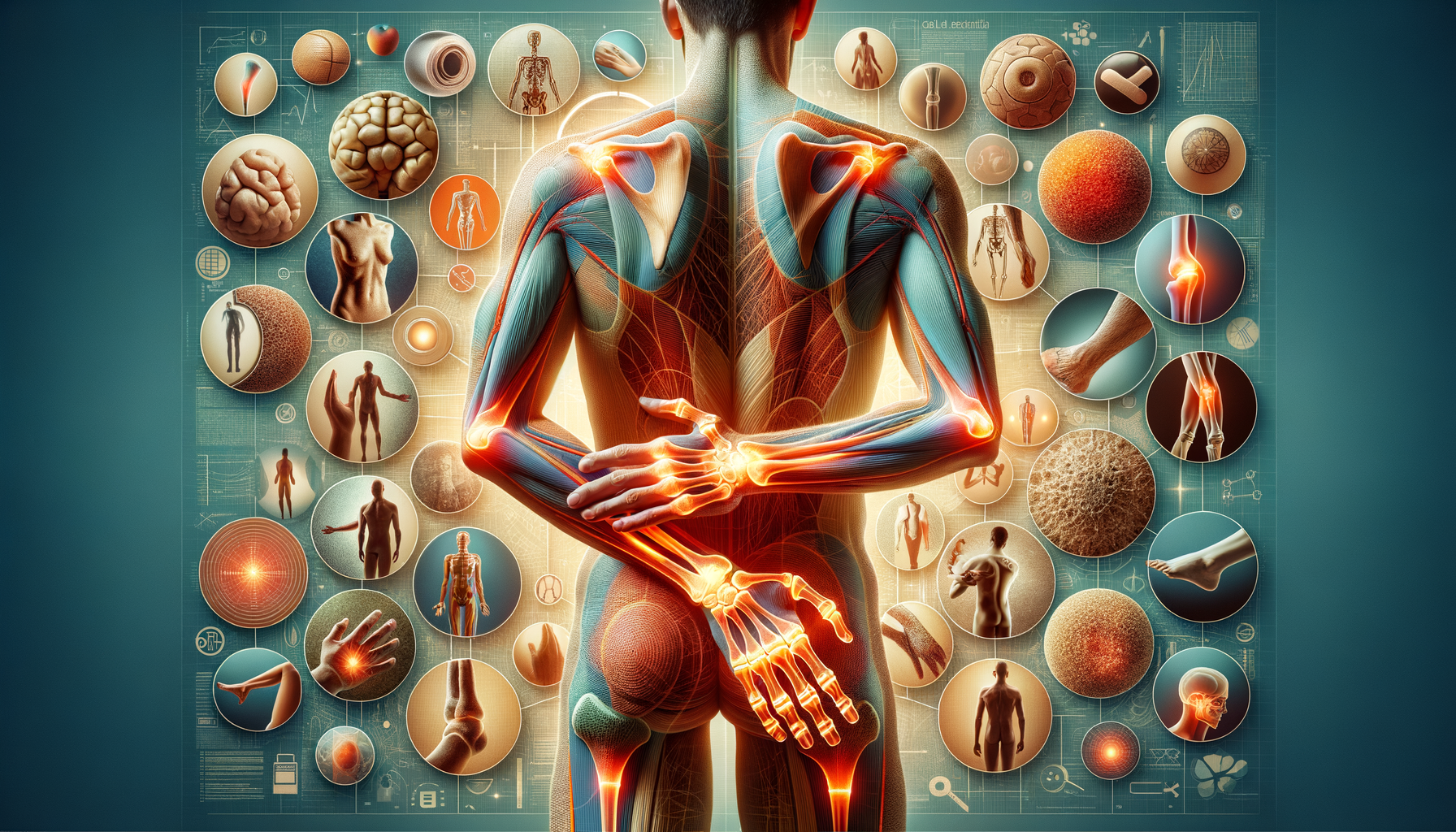Exploring Effective Strategies for Arthritis Relief
Understanding arthritis relief is crucial for improving quality of life, as this condition affects millions worldwide.

Understanding Arthritis: An Overview
Arthritis is a common condition that affects millions of individuals worldwide, causing pain and inflammation in the joints. It encompasses over 100 different types, with osteoarthritis and rheumatoid arthritis being the most prevalent. Understanding the nature of arthritis is the first step towards effective management and relief. Osteoarthritis typically results from wear and tear of the cartilage, leading to pain and stiffness. In contrast, rheumatoid arthritis is an autoimmune disorder where the body’s immune system attacks the joints, causing inflammation and pain.
Arthritis affects people of all ages, although it’s more common in older adults. The symptoms can range from mild discomfort to severe pain, significantly impacting daily activities and quality of life. The economic burden of arthritis is also substantial, with billions spent annually on healthcare costs and lost productivity. Therefore, finding effective arthritis relief is not only important for individual well-being but also has broader societal implications.
Conventional Treatments for Arthritis Relief
Conventional treatments for arthritis relief primarily focus on managing symptoms and improving joint function. These treatments are often tailored to the type of arthritis and the severity of the symptoms. Common approaches include:
- Medications: Nonsteroidal anti-inflammatory drugs (NSAIDs) and analgesics are commonly prescribed to relieve pain and reduce inflammation. Disease-modifying antirheumatic drugs (DMARDs) are used for rheumatoid arthritis to slow disease progression.
- Physical Therapy: Customized exercise programs can help improve flexibility, strengthen muscles around the joints, and reduce pain. Physical therapists can also provide guidance on proper body mechanics to protect the joints.
- Surgery: In severe cases, surgical interventions such as joint replacement or joint fusion may be considered to restore function and relieve pain.
While these conventional treatments can be effective, they may not be suitable for everyone due to potential side effects or contraindications. Therefore, it’s essential for individuals to work closely with their healthcare providers to develop a personalized treatment plan.
Exploring Natural Remedies for Arthritis Relief
Alongside conventional treatments, many individuals seek natural remedies to alleviate arthritis symptoms. These remedies can complement medical treatments and provide additional relief. Some popular natural approaches include:
- Dietary Changes: Anti-inflammatory diets rich in omega-3 fatty acids, antioxidants, and fiber can help reduce inflammation. Foods such as fatty fish, nuts, fruits, and vegetables are often recommended.
- Herbal Supplements: Certain herbs, like turmeric and ginger, have anti-inflammatory properties and may help reduce arthritis symptoms. However, it’s crucial to consult a healthcare provider before starting any supplements.
- Acupuncture: This ancient practice involves inserting thin needles into specific points on the body to relieve pain. Some studies suggest that acupuncture can be beneficial for arthritis patients.
While natural remedies can offer relief, it’s important to approach them with caution and ensure they don’t interfere with prescribed treatments. Consulting with a healthcare professional is advisable when considering alternative therapies.
Lifestyle Modifications for Managing Arthritis
Adopting certain lifestyle modifications can play a significant role in managing arthritis and enhancing overall well-being. These changes can help reduce pain, improve joint function, and prevent further damage. Key lifestyle modifications include:
- Regular Exercise: Engaging in low-impact exercises such as swimming, walking, or cycling can help maintain joint flexibility and strength. Exercise also aids in weight management, which can reduce stress on the joints.
- Weight Management: Maintaining a healthy weight is crucial for arthritis patients, as excess weight puts additional strain on weight-bearing joints. A balanced diet and regular physical activity can aid in weight management.
- Stress Management: Stress can exacerbate arthritis symptoms. Techniques such as yoga, meditation, and deep breathing exercises can help manage stress levels and improve overall mental health.
Implementing these lifestyle changes requires commitment and consistency but can significantly improve the quality of life for those living with arthritis.
Innovative Therapies and Future Directions
Recent advancements in medical research have led to the development of innovative therapies for arthritis relief. These therapies aim to provide more effective and targeted treatment options. Some promising approaches include:
- Biologic Drugs: These are genetically engineered proteins that target specific components of the immune system involved in inflammation. Biologics have shown promising results in treating rheumatoid arthritis.
- Gene Therapy: Although still in experimental stages, gene therapy holds potential for treating arthritis by modifying or replacing faulty genes responsible for the disease.
- Regenerative Medicine: Techniques such as stem cell therapy and platelet-rich plasma (PRP) injections are being explored for their ability to repair damaged tissues and reduce inflammation.
While these therapies offer hope for more effective arthritis relief, further research and clinical trials are necessary to establish their safety and efficacy. Nevertheless, they represent exciting possibilities for the future of arthritis treatment.